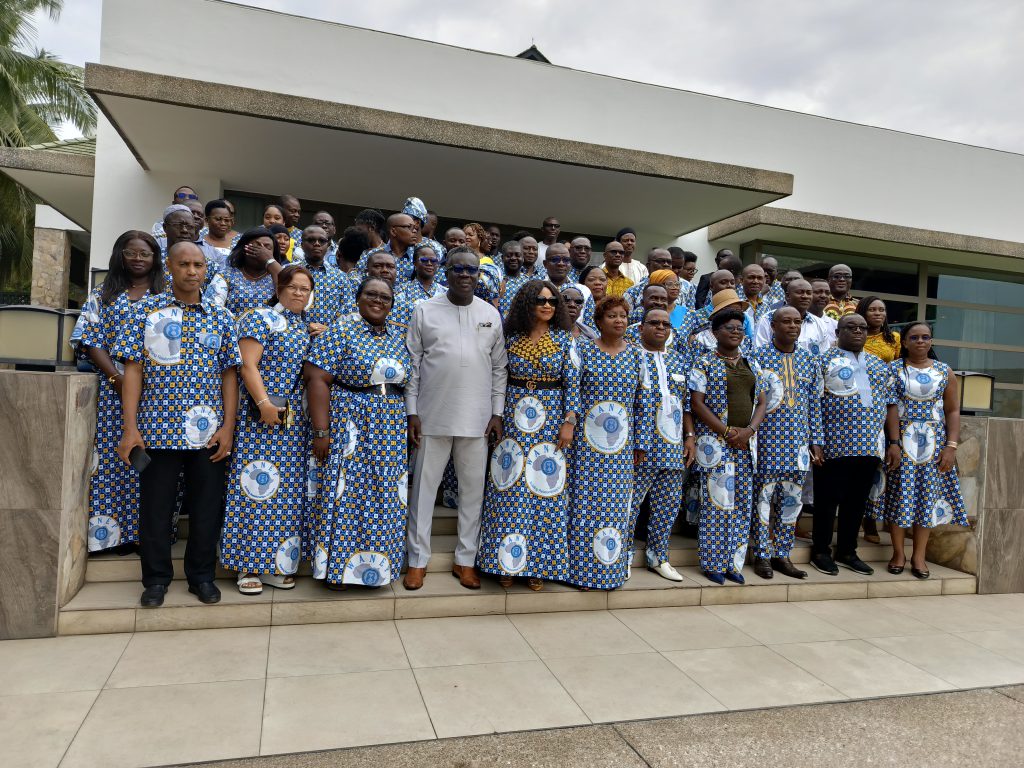By Iddi Yire
Accra, March 26, GNA – The successful conduct of elections in Ghana and Senegal in 2024, has gone a long way to strengthen democracy in West Africa, Mrs Levinia Addae-Mensah, the Executive Director of the West Africa Network for Peacebuilding (WANEP), has stated.
“I think the Ghana elections particularly and Senegal also gives us a new sense of hope for the region,” Mrs Addae-Mensah said at the opening of the 2025 General Assembly Meeting of WANEP in Accra.
“These are some of the positive dynamics that attest to the efforts that we have engaged in, in terms of engaging in terms of building infrastructures for peace and supporting local actors to become more relevant and become more visible also.”
The two-day meeting on the theme: “Shaping the Future of Multilateralism and Regionalism in West Africa”, focuses on the evolving dynamics of multilateralism and regionalism in West Africa.
It seeks to explore the challenges and opportunities for civil society organisations (CSOs) in promoting peace, security, and sustainable development across the region.
Mrs Addae-Mensah said the West Africa region was traversing a difficult era of unprecedented dynamics, which for her could be described in a sense as street unraveling with significant fault lines of fragility.
She said the expanding scope of insecurities, growing strength of terrorism and violent extremism groups in the Sahel and parts of some coastal states and its interlinkages with kidnapping, banditry, and communal violence.
She noted that the expanded zones of instability and ungoverned spaces with these cascading humanitarian effects, which also had begun to affect even energy, access to energy, access to education; declaring that these were some of the broad issues that they were dealing with. She cited additionally, the broad perceptions of democratic backsliding and regional fragmentation following the decision of some key states in West Africa region to exit from ECOWAS and form another alliance.
Mrs Addae-Mensah said WANEP acknowledged that the rapidly evolving landscape of global governance and regional cooperation amidst the geopolitical shifts, the increasing fragility and restructuring of multilateral institutions, demanded that they adapt and innovate and assert their relevance.

Touching on some of their achievements, Mrs Addae-Mensah said looking at institutional level, they saw successful transition process from last September; saying “this was a third leadership transition in WANEP in its 25 years of existence and the appointment of the first female Executive Director”.
“I think this leadership transition really reaffirmed WANEP’s commitment to promoting leadership succession both within political and social spaces and also the advancement of gender responsive governance”.
“In terms of support to electoral processes, we have played a critical role in promoting peaceful democratic transitions,” Mrs Addae-Mensah said.
She noted that the challenges they had seen in multilateralism themselves gives them an opportunity to really identify new pathways and new opportunities to enhance leadership and drive by local actors.
Dr Philip Attuquayefio, a Research Fellow, Legon Center for International Affairs and Diplomacy (LECIAD), University of Ghana, who delivered the keynote address, said the future of CSOs in West Africa amidst key shifts in multilateralism and regionalism would be defined by their adaptability, innovation, and strategic engagement.
“While restrictive political environments, shifting donor priorities, and emerging challenges pose significant risks, CSOs that embrace digital transformation, diversify their funding models, strengthen regional alliances, and expand their thematic focus will continue to play a critical role in shaping governance, development, and human rights in the region.”
Dr Florence Nwawuihe Iheme, WANEP Regional Board Chair, said issues of justice, human rights, employment, marginalization were still detracting from the gains; and that these made it very difficult for the subregion to achieve the SDG 16, which requires all to ensure that they were able to deepen peace, increase resilience and inclusiveness in their governance, and to be just and fair to all kinds of people.
“Until we are able to do this, there’s no way we are going to achieve the SDG 16.”
Mr George Amoh, Executive Secretary of the National Peace Council, in a solidarity message advocated that WANEP should lead the charge of setting up the West Network for Peace Institute in the region to build capacity for young peace actors in the sub-region.
GNA
LAA